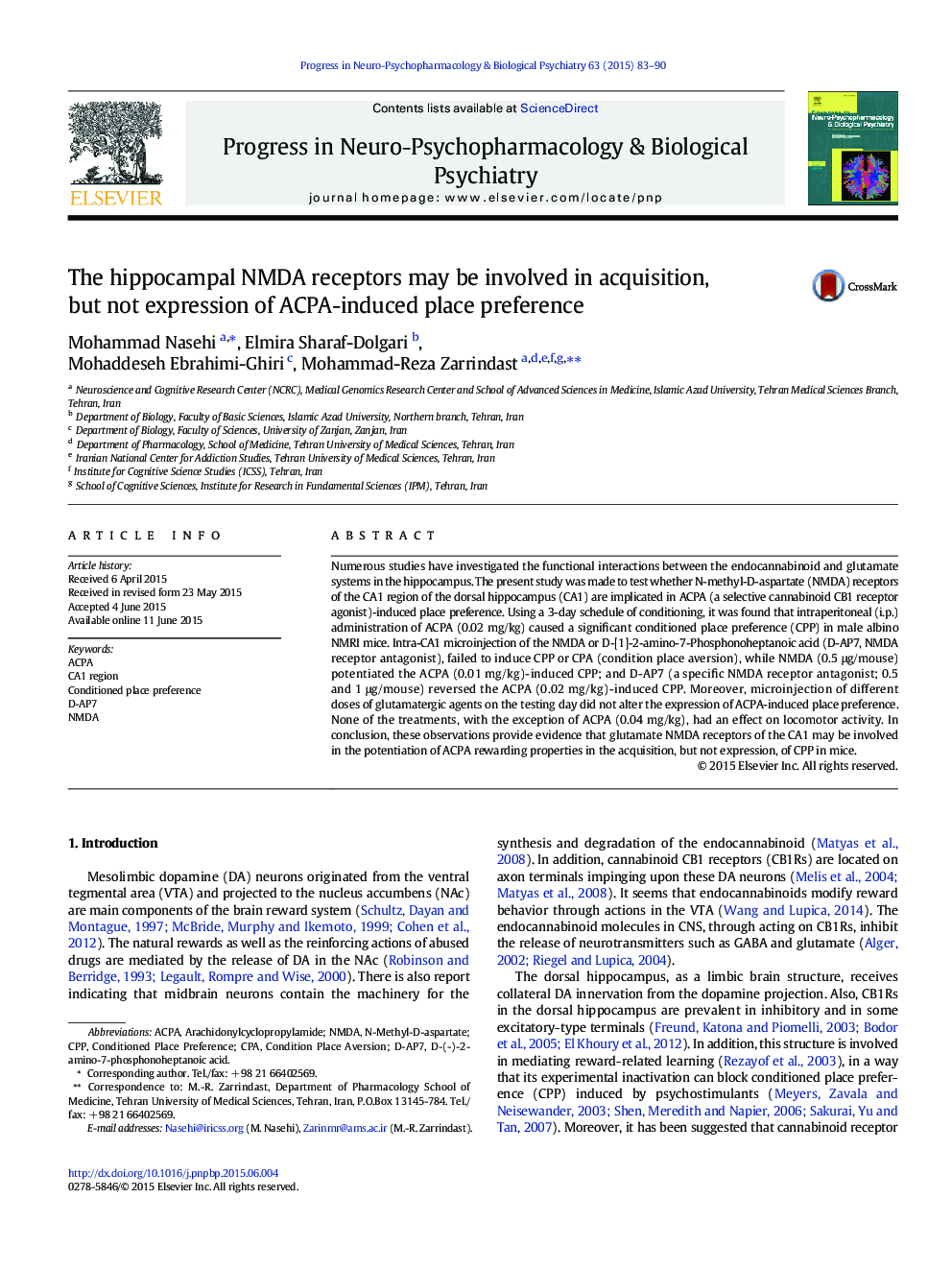| Article ID | Journal | Published Year | Pages | File Type |
|---|---|---|---|---|
| 5844195 | Progress in Neuro-Psychopharmacology and Biological Psychiatry | 2015 | 8 Pages |
â¢Intraperitoneal injection of ACPA-induced CPPâ¢Intra-CA1 injection of NMDA or D-AP7 fail to induce CPP or CPA.â¢NMDA or D-AP7 potentiated or reversed CPP acquisition of ACPA, respectively.â¢Intra-CA1 injection of NMDA or D-AP7 prior to testing did not induce CPP or CPA.â¢NMDA or D-AP7 plus ACPA also did not alter CPP expression induced by ACPA.
Numerous studies have investigated the functional interactions between the endocannabinoid and glutamate systems in the hippocampus. The present study was made to test whether N-methyl-D-aspartate (NMDA) receptors of the CA1 region of the dorsal hippocampus (CA1) are implicated in ACPA (a selective cannabinoid CB1 receptor agonist)-induced place preference. Using a 3-day schedule of conditioning, it was found that intraperitoneal (i.p.) administration of ACPA (0.02 mg/kg) caused a significant conditioned place preference (CPP) in male albino NMRI mice. Intra-CA1 microinjection of the NMDA or D-[1]-2-amino-7-Phosphonoheptanoic acid (D-AP7, NMDA receptor antagonist), failed to induce CPP or CPA (condition place aversion), while NMDA (0.5 μg/mouse) potentiated the ACPA (0.01 mg/kg)-induced CPP; and D-AP7 (a specific NMDA receptor antagonist; 0.5 and 1 μg/mouse) reversed the ACPA (0.02 mg/kg)-induced CPP. Moreover, microinjection of different doses of glutamatergic agents on the testing day did not alter the expression of ACPA-induced place preference. None of the treatments, with the exception of ACPA (0.04 mg/kg), had an effect on locomotor activity. In conclusion, these observations provide evidence that glutamate NMDA receptors of the CA1 may be involved in the potentiation of ACPA rewarding properties in the acquisition, but not expression, of CPP in mice.
